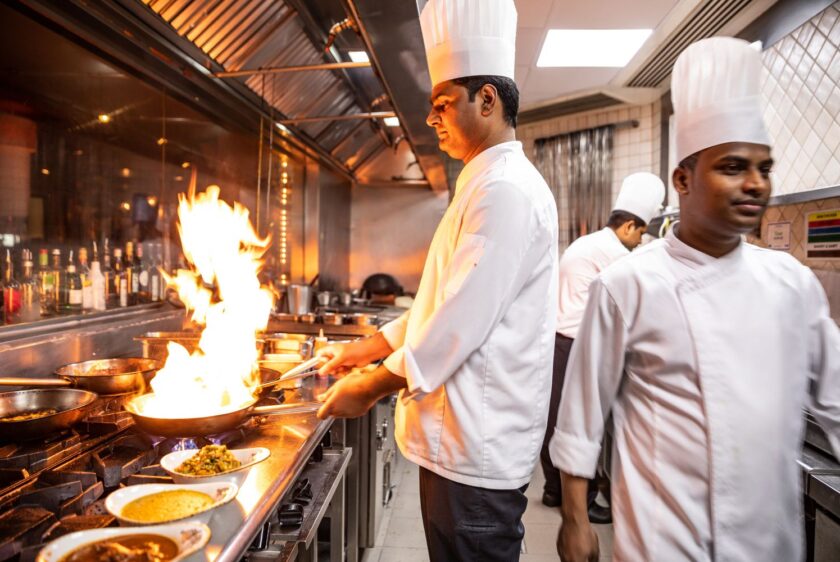
Managing Waste in the Restaurant Kitchen
Managing waste in the restaurant kitchen is a task that impacts both operational efficiency and the environmental footprint of your establishment. At Central Waste, we have years of experience helping restaurants streamline their waste management processes to save money and reduce their environmental impact. Here are some practical steps to effectively manage waste in your restaurant kitchen.
Conduct a Waste Audit
The first step in managing kitchen waste is to understand what types and amounts of waste your restaurant produces. Conducting a waste audit involves sorting and measuring waste over a specific period to identify the most common waste streams. This process will help you pinpoint areas where waste can be reduced, such as food scraps, packaging materials, and disposable items.
Implement a Recycling Program
Recycling can significantly reduce the volume of waste your restaurant sends to landfills. Set up a comprehensive recycling program that includes separate bins for paper, cardboard, plastics, glass, and metals. Clearly label each bin and place them in convenient locations throughout the kitchen and dining areas to encourage proper use. Training your staff on what can and cannot be recycled is also crucial for the program’s success.
Reduce Food Waste
Food waste is one of the largest contributors to restaurant waste. To tackle this issue, consider the following strategies:
- Inventory Management: Keep track of your inventory to avoid over-ordering and ensure that ingredients are used before they spoil. Implement a first-in, first-out (FIFO) system to rotate stock efficiently.
- Portion Control: Serve appropriate portion sizes to minimise plate waste. Monitor customer feedback and adjust portions based on their preferences.
- Creative Menu Planning: Design your menu to utilise ingredients across multiple dishes. This not only reduces waste but also maximizes the use of perishable items.
- Repurpose Leftovers: Find creative ways to repurpose leftovers into new dishes or specials. For example, vegetable trimmings can be used to make stocks or soups.
Compost Organic Waste
Composting is an excellent way to manage organic waste such as fruit and vegetable scraps, coffee grounds, and eggshells. Set up a composting system either on-site or through a commercial composting service. Composting reduces the amount of waste sent to landfills and produces valuable compost that can be used in landscaping or community gardens.
Minimise Packaging Waste
Packaging waste is another significant issue in restaurant kitchens. To minimise this type of waste, consider the following approaches:
- Bulk Purchasing: Buy ingredients and supplies in bulk to reduce the amount of packaging. Ensure that bulk items are stored properly to prevent spoilage.
- Supplier Partnerships: Work with suppliers who use minimal or recyclable packaging. Encourage them to take back and reuse packaging materials whenever possible.
- Reusable Containers: Use reusable containers for storing and transporting food. This reduces the need for disposable packaging and helps maintain food quality.
Train and Engage Staff
Your staff plays a vital role in managing waste effectively. Provide regular training sessions on waste reduction, recycling, and composting practices. Encourage staff to share their ideas and suggestions for improving waste management. Recognise and reward those who actively contribute to waste reduction efforts.
Monitor and Adjust
Regularly monitoring your waste management practices is essential for continuous improvement. Keep track of the types and quantities of waste generated and review this data periodically. Use the insights gained to make adjustments to your processes and strategies. For example, if you notice an increase in food waste, investigate the cause and implement corrective measures.
Educate Customers
Educating your customers about your waste management efforts can enhance your restaurant’s reputation and encourage them to participate. Use menu inserts, table tents, and social media to inform customers about the location of waste and recycling bins and what types of materials can be recycled or composted. Consider engaging volunteers or staff to monitor waste stations and assist attendees in making the right disposal choices. An informed and engaged audience is more likely to follow waste management protocols.
Partner with a Reliable Waste Management Company
At Central Waste, we offer tailored waste management solutions that meet the specific needs of restaurants. Our services include waste audits, recycling programs, composting solutions, and regular waste collection. We work closely with our customers to ensure that their waste is managed efficiently and sustainably.
Managing waste in the restaurant kitchen requires a comprehensive and proactive approach. By conducting waste audits, implementing recycling and composting programs, reducing food and packaging waste, training staff, monitoring practices, educating customers, and partnering with a reliable waste management company, restaurants can significantly reduce their environmental impact and save on operational costs.
